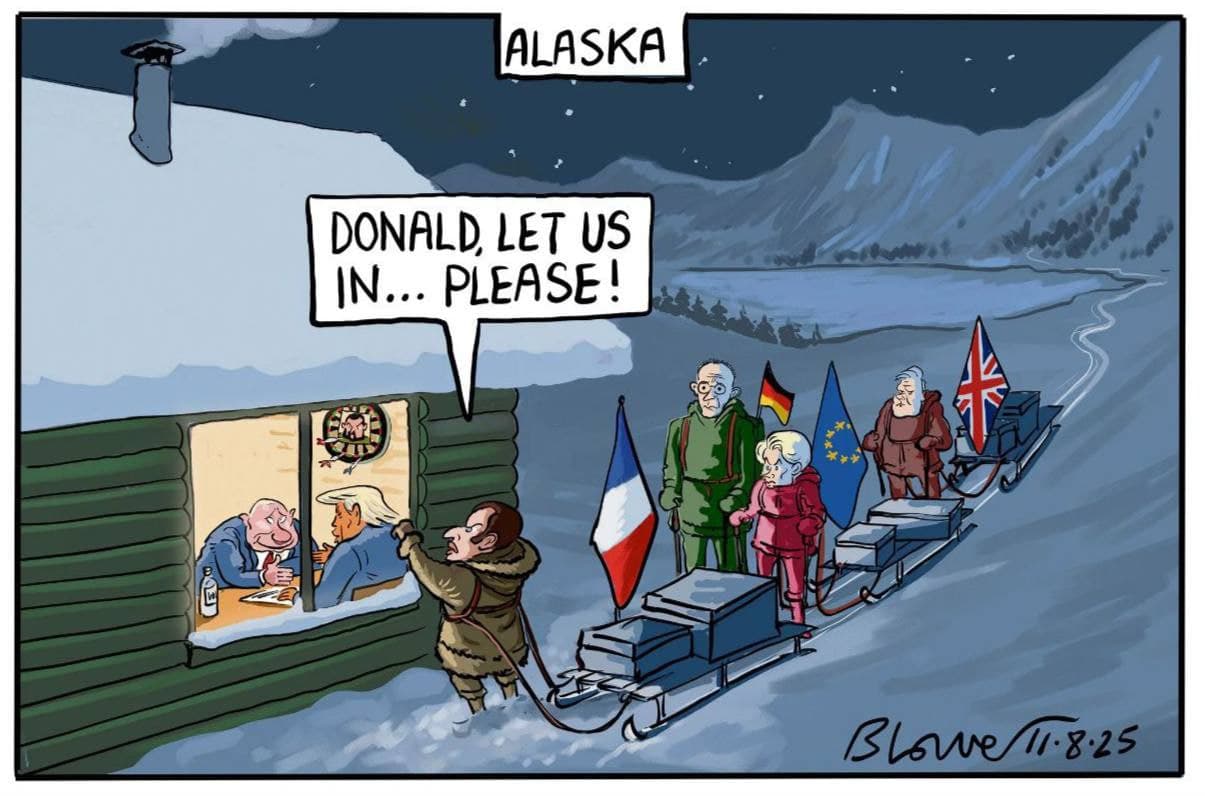EU Leaders Urge Trump to Press Putin for Ukraine Peace Amid Stalemate on Territorial Claims
In a bold diplomatic maneuver, European leaders are seeking a meeting with former U.S. President Donald Trump, hoping to leverage his influence in a bid to halt ongoing hostilities in Ukraine. This initiative comes as Trump has signaled a willingness to entertain the idea of Ukraine ceding control over the Crimean Peninsula and the Donetsk and Lugansk Oblasts. However, EU officials are staunchly opposed to any recognition of Russian territorial gains, urging Trump to demand an end to Russian aggression and a freeze on the current front lines.
Background & Context
The conflict in Ukraine, which has been ongoing since 2014, has seen Russia annex Crimea and support separatist movements in Eastern Ukraine. The international community, particularly the EU, has consistently condemned these actions and supported Ukraine"s sovereignty. Ukrainian President Volodymyr Zelensky has firmly rejected any territorial concessions, citing a constitutional clause that prohibits such actions. This stance has garnered unanimous support from EU leaders, who emphasize the importance of maintaining Ukraine"s territorial integrity in any peace negotiations.
As the situation on the ground remains volatile, with recent breakthroughs by Ukrainian forces in the east, the stakes are higher than ever. The EU"s push to engage Trump is seen as a desperate attempt to influence the trajectory of peace talks, especially with Trump’s potential return to the presidency looming in the 2024 elections.
Key Developments
Despite Trump"s apparent openness to territorial concessions, EU leaders are adamant that any peace process must not legitimize Russian conquests. "We cannot allow any formal recognition of what Russia has taken by force," stated a senior EU diplomat. They are urging Trump to leverage his relationship with Putin to call for an immediate cessation of hostilities and a stabilization of the front lines.
In a recent statement, President Zelensky reiterated his commitment to Ukraine"s territorial sovereignty, emphasizing that any negotiations that involve ceding land would be unconstitutional and unacceptable. This firm stance has been echoed by EU officials, who have conveyed their unwavering support for Ukraine"s position. Meanwhile, Russian President Vladimir Putin remains resolute in his demands for recognition of the territories seized and has expressed an ongoing desire for further territorial concessions from Ukraine.
Broader Impact
The implications of this diplomatic push extend beyond Ukraine. The EU"s engagement with Trump could reshape the international response to the conflict, particularly in light of the shifting political landscape in the United States. As previously reported, Trump"s administration had a complex relationship with Europe, often prioritizing bilateral negotiations over multilateral agreements. Should Trump return to power, his approach to foreign policy could significantly alter the dynamics of NATO and the EU"s collective response to Russian aggression.
Experts warn that any concessions made by Ukraine could embolden Russia in its future actions, potentially leading to further destabilization in Eastern Europe. The notion of "reciprocal territorial exchanges," mentioned by EU diplomats, is unlikely to find favor in Moscow, especially given the recent successes of Ukrainian forces on the battlefield. Historical precedents suggest that territorial concessions often lead to prolonged conflict rather than resolution, raising concerns about the long-term viability of any such agreements.
What"s Next
Looking ahead, the immediate future of the Ukraine conflict hinges on the outcomes of this proposed meeting between Trump and EU leaders. If successful, it could pave the way for renewed negotiations and a potential path to peace. However, with both sides entrenched in their positions, the likelihood of a breakthrough remains uncertain.
As the situation develops, observers will be closely monitoring both the military dynamics on the ground and the diplomatic efforts in play. With ongoing military actions in Eastern Ukraine and the backdrop of an impending U.S. election cycle, the interplay between domestic politics and international diplomacy will be critical in shaping the next chapter of this conflict. For more on the implications of recent developments, see our related coverage on the collapsing front line in Donetsk.


![[Video] Heavy clashes and gunfire reported in Baghdad, Iraq](/_next/image?url=%2Fapi%2Fimage%2Fthumbnails%2Fthumbnail-1768342239932-848qsh-thumbnail.jpg&w=3840&q=75)




![[Video] Gunfire between Iraqi security forces and Sadr militias in Baghdad](/_next/image?url=%2Fapi%2Fimage%2Fthumbnails%2Fthumbnail-1768343508874-4redb-thumbnail.jpg&w=3840&q=75)
